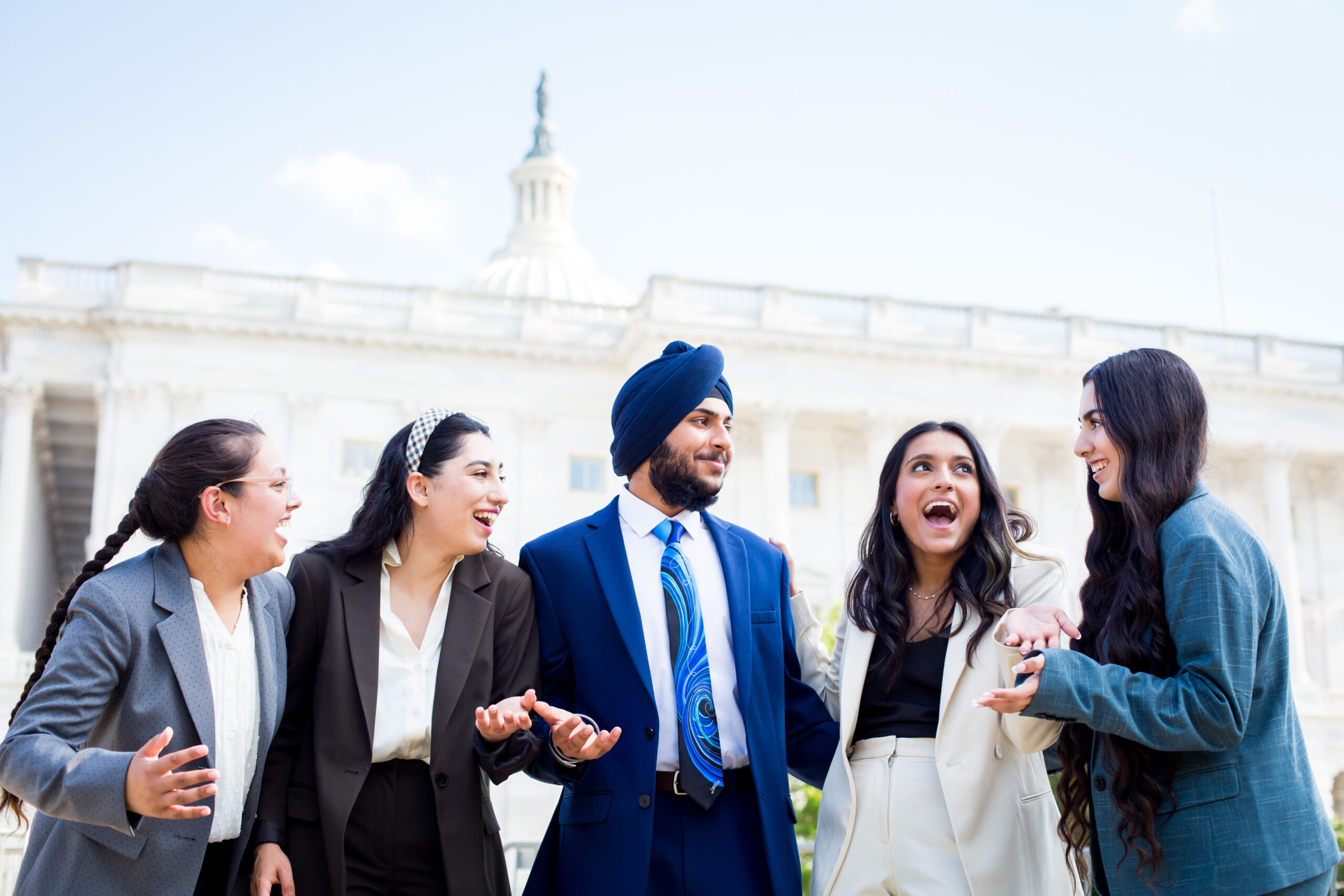Security agencies and communities cooperate to protect civil rights, leaders say “Our country is more secure today because law enforcement and America’s Arab, Muslim, Sikh and South Asian communities are working more closely together,” according to Homeland Security’s Daniel W. Sutherland. “We sincerely hope and expect that those relationships will deepen and strengthen as the years progress,” the officer for civil rights and civil liberties at the Department of Homeland Security said, introducing a panel on security enhancement through community involvement at the National Press Club in Washington September 15. Addressing the group, Assistant Attorney General for Civil Rights Wan Kim called the September 11, 2001, attacks in the United States ” a seminal event in the nation’s history” and deplored post-9/11 hate crimes against Arab and Sikh Americans. Among the most effective tools to counter such incidents are outreach programs to the Arab and South Asian American community leaders, he said, adding that cooperation with federal, state and local law enforcement officials has enhanced protection of civil rights in their communities and brought criminals to justice. Kim cited the examples of James Herrick, who attempted to burn down a Pakistani restaurant in Salt Lake City; Frank Roque, who gunned down Balbir Singh Sodhi, a Sikh, in a Mesa, Arizona, service station; and an Iowa Marriot hotel that, under false pretences, canceled an agreement to host an American Syrian and Lebanese group’s annual convention. Kim said there was redress in each case: Herrick was sentenced to five years in prison; Roque was sentenced to death; and the Marriot apologized, paid $100,000 in compensation and instituted training for its employees in cultural sensitivity. MORE FEDERAL RESOURCES DEVOTED TO PROTECTING CIVIL RIGHTS Since 2001, the Department of Justice has investigated more than 700 cases throughout the United States and brought federal charges against 35 defendants, Kim said. Attorneys from Homeland Security’s civil rights division coordinated with state prosecutors in 150 nonfederal prosecutions, “in many cases providing substantial assistance.” Cases of harassment of Muslim students have been investigated. “In New York, currently we are litigating a case involving the right of Muslim and Sikh bus and subway drivers to wear their religious headgear,” he said. Since 9/11, more people have been detailed to track civil rights issues in the Homeland Security and Justice departments. The Department of Justice sponsored more than 250 town hall meetings with American Arabs, Muslims and South Asians around the country to address their concerns, Kim said, adding, “But this is a process, not a destination. There is more work to be done.” New training on cultural issues has been incorporated at the FBI, according to FBI unit chief Brett Hovington. “We are fighting in a totally different environment these days, and the war on terrorism is not going to be won, necessarily, with knocking down doors, but based on building relationships,” he said. TERRORISM, EXTREMISM REPRESENT “CLASH OF THE UNCIVILIZED” Panelist Imam Mohamed Hagmagid Ali of the All Dulles Area Muslim Society Center in Virginia spoke of its work “to make sure [the Muslim] community protects itself from being penetrated by extremists and those who might wish harm to our nation and hijack our religion.” A decree, or fatwa, denouncing terrorism was issued at his mosque. Programs for youth “to integrate them into society,” such as the Boy Scouts, are emphasized. Networking with other religious organizations and civil rights groups, instituting a “mosque without walls” open to Muslim and non-Muslim alike, and establishing dialogues with U.S. government agencies are effective approaches to the issues that affect the Muslim community, he said. “There has been a collective decision at the level of the Muslim communities of America to become a part of the solution in the post 9/11 conflict as opposed to a part of the problem,” said Ahmed Younis, national director of the Muslim Public Affairs Council. He supported the imam’s view that mosques can ensure community integrity remains intact, that they are not manipulated “to engage in acts of extremism or acts of terrorism.” He said the discourse begins among Muslims themselves, with amplification of Islam’s message against terrorism and extremism, and financial accountability to congregations and transparency about where and how charitable funds are being spent. “We do not subscribe to the proposition that there is a clash of civilizations, we as Muslims subscribe to the proposition that there is a clash of the uncivilized,” Younis said. Manjit Singh, head of the Sikh American Legal Defense and Education Fund, described the ongoing problems that American Sikhs have experienced, and how Sikh organizations have worked with U.S. security agencies to define culturally sensitive guidelines for airport screening. “One can’t have security without making everyone secure,” he said. “We can’t be discriminatory and say security applies to some and not to others.” To a question about why American Muslims are not drawn to extremism as readily as their European counterparts, Ali offered, “American Muslims are unique. They are very integrated with the community.” Other panel participants were Laila Al-Qatami, communications director for the American-Arab Anti-Discrimination Committee and Dr. Yahya Basha, of Basha Diagnostics P.C. Source: U.S. Department of State judythpiazza@gmail.com
